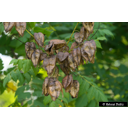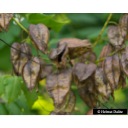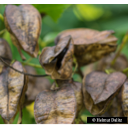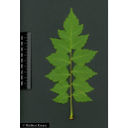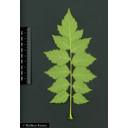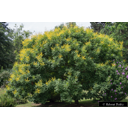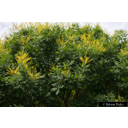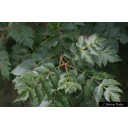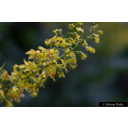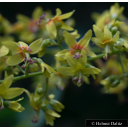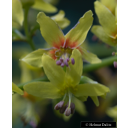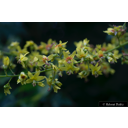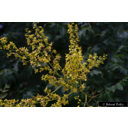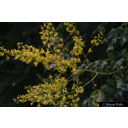Useful information about the taxon (species, subspecies, variety...)
Koelreuteria paniculata Laxm. 1772
Sapindaceae
(APG IV)golden rain tree, varnish tree
Taxon concept: The Plant List (2010)
Distribution: Japan, Korea, China
Size: 6 - 10 (m)
Flowering period: VII - VIII
Koelreuteria paniculata Laxm. - Accepted: Koelreuteria paniculata Laxm. bei Zander 2008; Familie: Sapindaceae (Zander 2008)Koelreuteria paniculata Laxm. - Accepted: Koelreuteria paniculata Laxm. bei The Plant List (2010); Familie: Sapindaceae (APG III)Koelreuteria paniculata Laxm. - Accepted: Koelreuteria paniculata Laxm. bei The Plant List (2014), version 1.1; Familie: Sapindaceae (APG III)Koelreuteria paniculata Laxm. - Accepted: Koelreuteria paniculata Laxm. bei The Plant List (2014), version 1.1; Familie: Sapindaceae (APG IV)Koelreuteria paniculata Laxm. - Accepted: Koelreuteria paniculata Laxm. bei World Flora Online - APG IV (Angiosperms); Familie: Sapindaceae (World Flora Online - APG IV (Angiosperms))
- Color of flower
- pale yellow
- Flowers
- hermaphrodite flowers, in 25-40 cm long pyramidal panicles
- Flower ecology
- insect-pollinated (entomophilous) (bees)
- Life form
- tree or shrub
- Leaves
- imparipinnate, 20-30 cm in length
- Foliage persistence
- deciduous
- Fruits
- 3-valved capsule fruit with black seeds
- Fruit ecology
- wind-dispersed (anemochorous)
- Natural occurrence (habitat)
- secondary forests
- Constraints according habitat
- tolerant to air pollution
- General recommendation
- suitable as beekeeping plant
- Usage
- as ornamental tree and for timber, the flowers can be used for the production of a yellow dye
- Bark
- dark grey or brownish
Kew Gardens and Collaborators (2017): Plants of the World Online. see: plantsoftheworldonline.org.; Pritsch, Günter et al. (1985): Bienenweide.. Neumann-Neudamm, Melsungen; Pritsch, Günter et al. (2007): 200 Trachtpflanzen erkennen und bewerten.. Kosmos, Stuttgart; Schick, B. & Spürgin, A. (1997): Die Bienenweide. Eugen Ulmer Verlag, Stuttgart, Auflage: 4., völlig neubearb. u. erw. A., 216 S. 978-3800174188.; Schönfelder, P. (2011): Das neue Handbuch der Heilpflanzen.. Franckh-Kosmos Verlags-GmbH & Co. KG, Stuttgart: 502. 978-3-440-12932-6.;
Diese Webseite verwendet Google Maps, um Karten und Standorte von Pflanzen in den Hohenheimer Gärten anzuzeigen. Dadurch werden unter Umständen Daten an Google weitergeleitet, was mit einer Verarbeitung Ihrer personenbezogenen Daten verbunden sein kann. Die Datenschutzerklärung von Google finden Sie hier: Datenschutzerklärung von Google
| Sex | Standort | Accession number | Planting year | Donation | IPEN | Lat. | Long. |
|---|---|---|---|---|---|---|---|
| Parzelle L | EG-L-078-16274 | 2001 | XX-0-HOH-EG-L-078-16274 | 48,708012432 | 9,2082322607 | ||
| Vegetationsgeschichte | VG-5474 | XX-0-HOH-VG-5474 | 48,708991 | 9,211793 |

